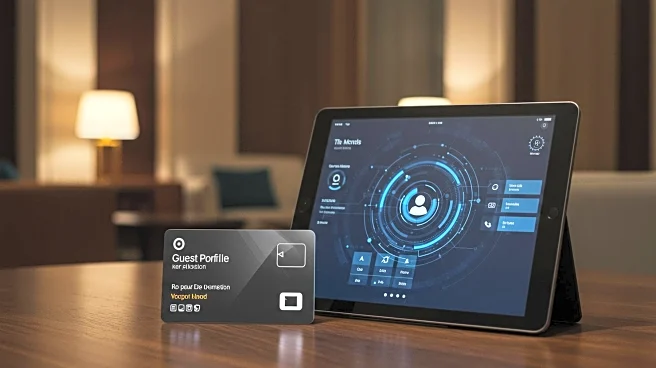What's Happening?
The hospitality industry is increasingly adopting centralized, real-time guest profiles to transform guest experiences and streamline operations. This approach, discussed during HITEC, emphasizes starting with the desired guest experience and using technology to achieve it. Industry leaders, including Matthew Clark from Shiji and Adam Mogelonsky from Hotel Mogel Consulting Ltd., highlight the integration of guest preferences across hotel and dining operations as a key benefit. The unified profiles enable personalized interactions, such as recognizing returning guests and tailoring their dining experiences. Experts like Mark Fancourt from TRAVHOTECH stress the importance of rethinking operational design to achieve consolidated business capability, while Simone Puorto from Hospitality Net views data as integral to the guest experience itself.
Why It's Important?
The shift towards centralized guest profiles represents a significant evolution in hospitality, promising enhanced guest satisfaction and operational efficiency. By integrating guest data across various touchpoints, hotels can offer personalized services that improve customer loyalty and differentiate them in a competitive market. This transformation also aligns with broader trends in data-driven service delivery, where real-time information enables more responsive and agile operations. The potential for increased revenue through improved guest experiences and operational efficiencies makes this approach attractive to hoteliers seeking to balance customer-centric strategies with business realities.
What's Next?
The hospitality industry is expected to continue exploring and implementing centralized guest profiles, with a focus on achieving seamless integration across systems. As technology evolves, hotels may adopt hub-and-spoke models with cloud-based PMS and open APIs to facilitate data flow and integration with third-party platforms. This will likely lead to further innovations in personalized guest services and operational agility. Stakeholders will need to address challenges related to data privacy and security while ensuring a clear return on investment for these technological enhancements.
Beyond the Headlines
The adoption of centralized guest profiles may prompt ethical considerations regarding data privacy and the extent of personalization in guest services. As hotels collect and utilize more personal data, they must navigate the balance between enhancing guest experiences and respecting privacy rights. Additionally, this shift could influence cultural perceptions of hospitality, where data-driven interactions become the norm, potentially altering traditional notions of service and hospitality.










